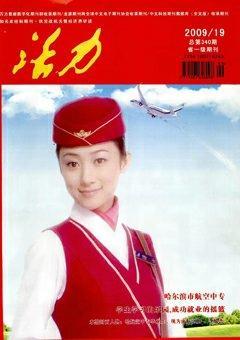英语语言帝国主义下汉语变化原因及其未来发展
李秋云
【摘要】最近世界各地的语言都受到英语的影响,汉语也不例外。混合汉语词汇以及拼音的出现让更多外国人呼吁用汉语拼音取代汉字。当然英语文化和英语帝国主义是引起这些变化的原因之一,但是根据马克思的解释,经济是基础决定一切,这当然包括文化和语言,据此本文大胆推测汉语的未来发展状况。
【关键词】汉语;英语帝国主义; 拼音; 经济
1. Two Voices to the English Linguistic Imperialism to Mandarin Chinese
Mandarin Chinese is now being influenced by the English linguistic imperialism in an unexpected way. The people who can not write Chinese character but tell are becoming more and more in china. Recently in the Google website, when searching for something, the Google suggests that you input the Chinese pinyin instead of the Chinese character, and then the Google will look for the similar Chinese item automatically; there are also many soft wares calling for changing the Chinese character into pinyin. Besides these there are many foreign Chinese learners complaining that the Chinese character is too difficult to learn, especially the tone and the handwriting, in their opinions, it is not necessary to learn the handwriting and tone as long as the people can understand what they are talking about. The second reason for the reform of mandarin language can be explained by Maxists philosogy: “The world is in motion and everything is changing, there is no thing without change.” ( 陈先达,2004) So is the Chinese language. The third reason for the reform of Mandarin Chinese is supported by the school of Maldives in the former Soviet Union. Maldives school is a main school after the October Revolution in 1917 and thinks that language is the superstructure and reflects ones class. It promotes that all language is developed from the following factors: сал、лер、йон、рош and must follow the stage of language. This is also the basis for Chinese scholars to use the pinyin as Chinese characters substitute. ( Phillipson, 2000﹚
On the other hand, the other voice is to protect the traditional Chinese treasure and Chinese language. This can be shown in three aspects: firstly, the Chinese character has recorded rich historical articles and texts, if creating a new pinyin character, we need many people to convert the text of the Chinese character into pinyin, while pinyin is in constant change, thus we will have difficulty in inheriting the historical treasure; secondly, the Chinese character itself has reflected the national character and psychology of Chinese people, for example, the box shape of Chinese character and its concrete structure have its historical origin and is Chinese-specific. Once the Chinese character is pinyinlized or westernized, it will lose its essential existence, at that time can it still be called the “Chinese” character? Thirdly, the traditional Chinese entertainment is “lyre-playing, chess, calligraphy and painting”, here the calligraphy is the artistic expression of Chinese character and it is not only a system of symbols but also a kind of entertainment. Once the Chinese character has become pinyin, the calligraphy will disappear consequently. Facing these two voices which one should be adopted? In order to make it clear, it is necessary to study the causes of mandarin Chineses change.
2. The Fundamental Cause of Chinese Languages Change
The superficial cause for mandarin Chinese change is English linguistic imperialism and also other aspects the thesis mentioned above. However Marxists philosophy has pointed out that the economy is the foundation. (梁树发,2004) When the foundation has changed, the superstructure which has been decided by the economy must change accordingly or make some adjustments to follow the social step, the Chinese character is a part of culture from some aspect and belongs to superstructure. It is decided by the economy, when looking backward, it can be seen that when a nation has a dominated language, the nation must also have a dominated economic power, when a district has a dominated language, this districts economy must also take an overwhelming advantage over other districts. At a matter of fact, during the Ming and Qing dynasty there were some foreign people who wanted to promote the Chinese character into pinyin. After the opium war, the Chinese economy collapses, the western missioners began to promote the campaign of Chinese language into pinyin through the English, the English linguistic imperialism was spreading the Chinese language and Chinese culture for its powerful economy. (周有光,1995 )
3. The Future of Mandarin Chinese
Thus it is natural that in 21century Chinese vocabulary and character will probably dominate as long as the Chinese economy develops as the predicted. As a matter of fact, presently it can be seen that the teaching of Chinese culture and mandarin Chinese is becoming more and more important. Many colleges have paid attention to the education of traditional Chinese and last year the ministry of education has already issued a policy to strength the education of Chinese language in the universities. From abroad there are already 26 Confucius colleges having been set up to help the foreigners to learn Chinese and over 30 million foreigners are learning mandarin Chinese. What is more, both the number of such colleges and learners is still increasing in an unexpected way. Thus the reality will expel the fear that the Chinese character will disappear and Chinese vocabulary will be replaced by the pidgin language. Presently the most important task and most efficient way of protecting Chinese language and Chinese culture are to develop our economy which is the foundation and determines the future development of politics, culture and of course “which” languages imperialism.
【Reference】
[1]Phillipson, R. ﹙2000﹚. Linguistic Imperialism.ShangHai:ShangHai Foreign Language Education Press.
[2]陈先达.《马克思主义哲学原理(第2版)》[M]. 北京: 人民大学出版社. 2004.

